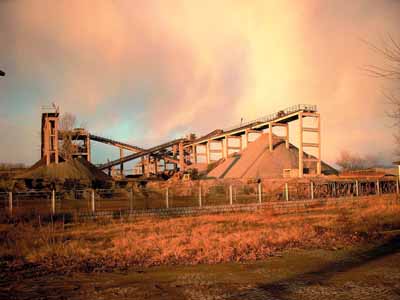Aggregates levy
Aggregates are materials that are frequently used in construction as a means of stabilising and reinforcement, typically in drainage applications and as base material under foundations and roads.
The aggregates levy is a UK tax on the commercial exploitation of certain types of aggregate. It was introduced to encourage the recycling of aggregate and is often a consideration in infrastructure and other civil engineering projects as well as the quarrying industry. In particular it applies to sand, gravel and rock that has been either:
- Dug from the ground.
- Dredged from the sea.
- Imported.
Businesses must register with HMRC if they exploit aggregate in the UK and must report the quantity of aggregate that has been produced or sold each quarter.
A flat tax of £2 per tonne of sand, gravel or rock has been applied at a frozen level since 2009, on 1 April 2024 the rate increased to £2.03 per tonne, and thereafter it will be subject to annual Retail Price Index (RPI) increases. Less is charged on smaller amounts, e.g. £1 per half-tonne, with the same tax still applied if aggregates are imported.
Tax relief may be available for aggregates that are exported or used in certain industrial or agricultural processes, or if the material is not actually used as aggregate. Materials such as soil, vegetation and other organic matter are also exempt.
For further information visit Aggregates Levy: detailed information and Environmental taxes, reliefs and schemes for businesses .
On 14 November 2023 the Scottish Government introduced and new Bill entitled 'The Aggregates Tax and Devolved Taxes Administration (Scotland) Bill' which will replace the UK Aggregates Levy in Scotland, stage 3 of the Bills progress ended on 1 October 2024.
[edit] Related articles on Designing Buildings
Featured articles and news
RTPI leader to become new CIOB Chief Executive Officer
Dr Victoria Hills MRTPI, FICE to take over after Caroline Gumble’s departure.
Social and affordable housing, a long term plan for delivery
The “Delivering a Decade of Renewal for Social and Affordable Housing” strategy sets out future path.
A change to adoptive architecture
Effects of global weather warming on architectural detailing, material choice and human interaction.
The proposed publicly owned and backed subsidiary of Homes England, to facilitate new homes.
How big is the problem and what can we do to mitigate the effects?
Overheating guidance and tools for building designers
A number of cool guides to help with the heat.
The UK's Modern Industrial Strategy: A 10 year plan
Previous consultation criticism, current key elements and general support with some persisting reservations.
Building Safety Regulator reforms
New roles, new staff and a new fast track service pave the way for a single construction regulator.
Architectural Technologist CPDs and Communications
CIAT CPD… and how you can do it!
Cooling centres and cool spaces
Managing extreme heat in cities by directing the public to places for heat stress relief and water sources.
Winter gardens: A brief history and warm variations
Extending the season with glass in different forms and terms.
Restoring Great Yarmouth's Winter Gardens
Transforming one of the least sustainable constructions imaginable.
Construction Skills Mission Board launch sector drive
Newly formed government and industry collaboration set strategy for recruiting an additional 100,000 construction workers a year.
New Architects Code comes into effect in September 2025
ARB Architects Code of Conduct and Practice available with ongoing consultation regarding guidance.
Welsh Skills Body (Medr) launches ambitious plan
The new skills body brings together funding and regulation of tertiary education and research for the devolved nation.
Paul Gandy FCIOB announced as next CIOB President
Former Tilbury Douglas CEO takes helm.
UK Infrastructure: A 10 Year Strategy. In brief with reactions
With the National Infrastructure and Service Transformation Authority (NISTA).























